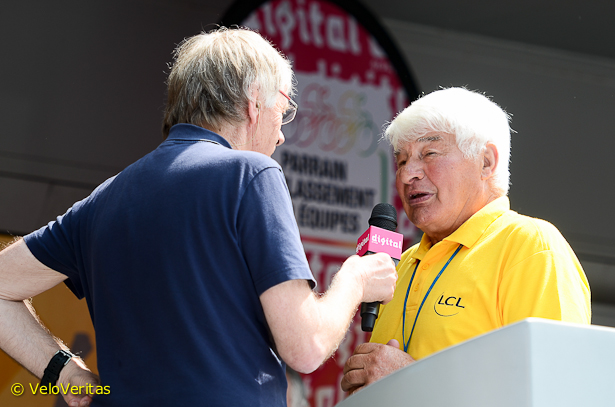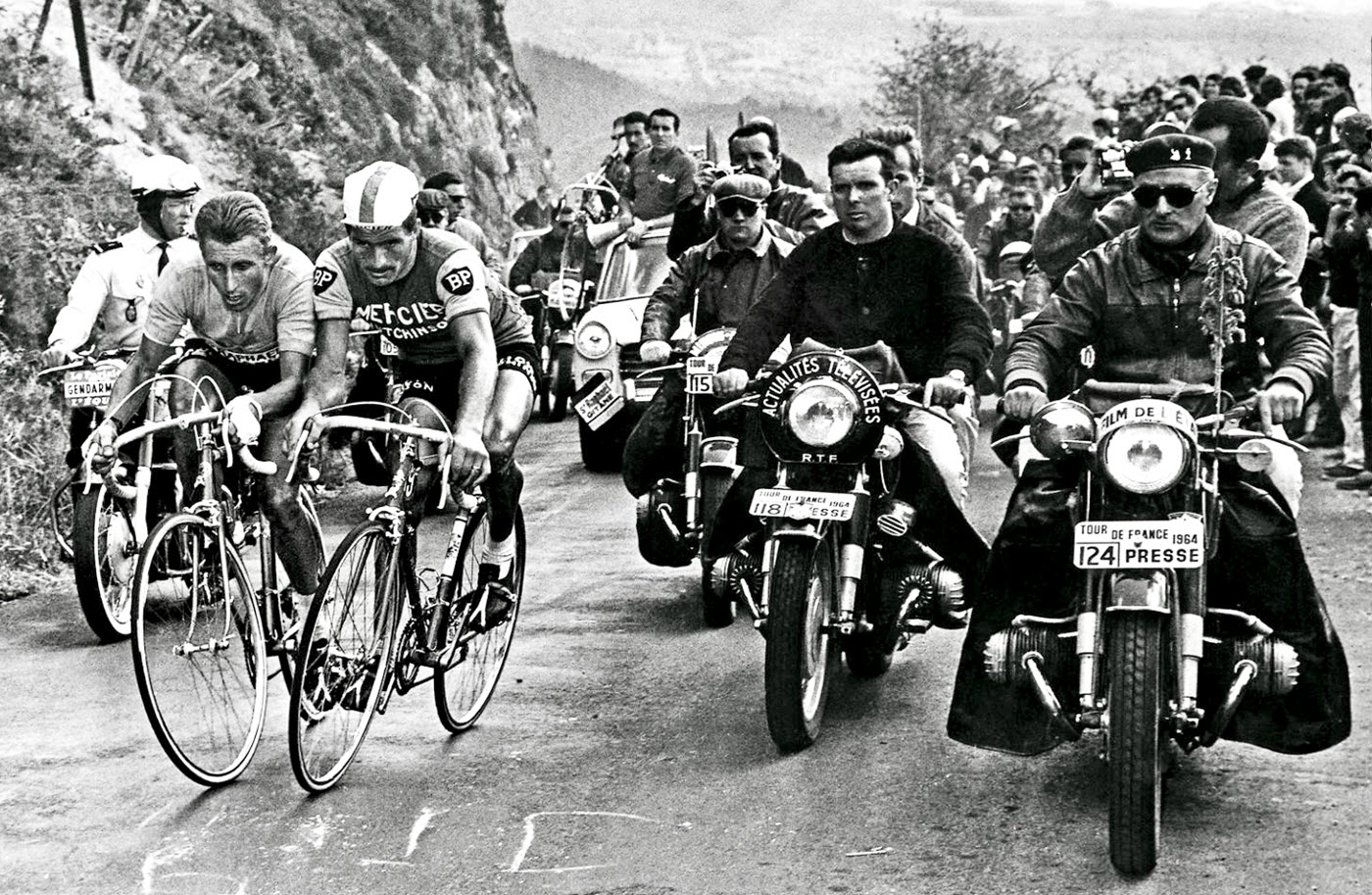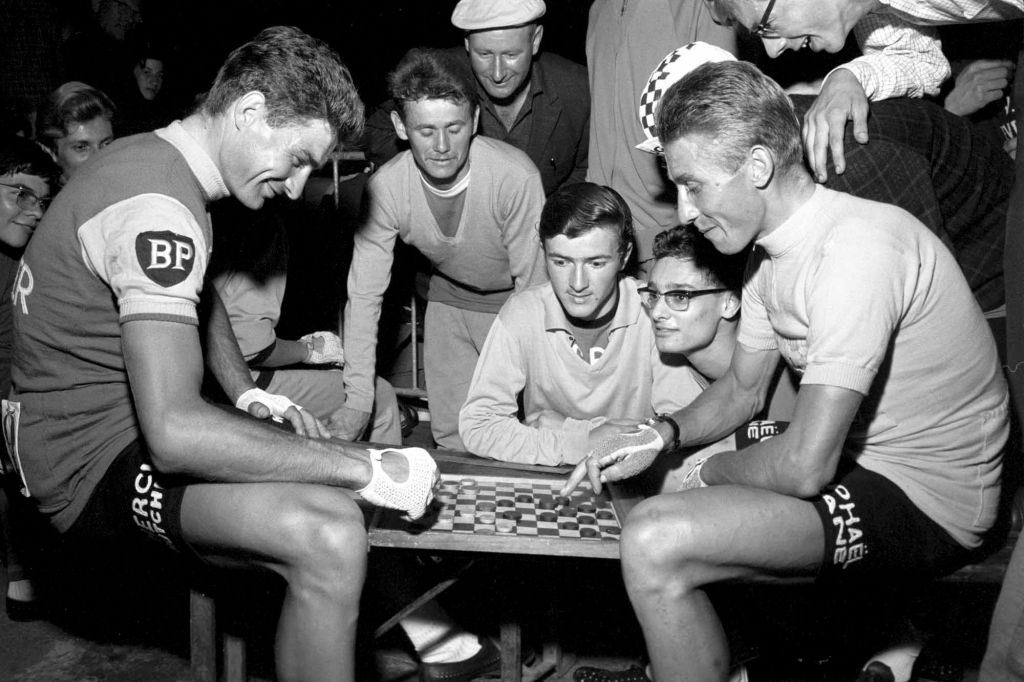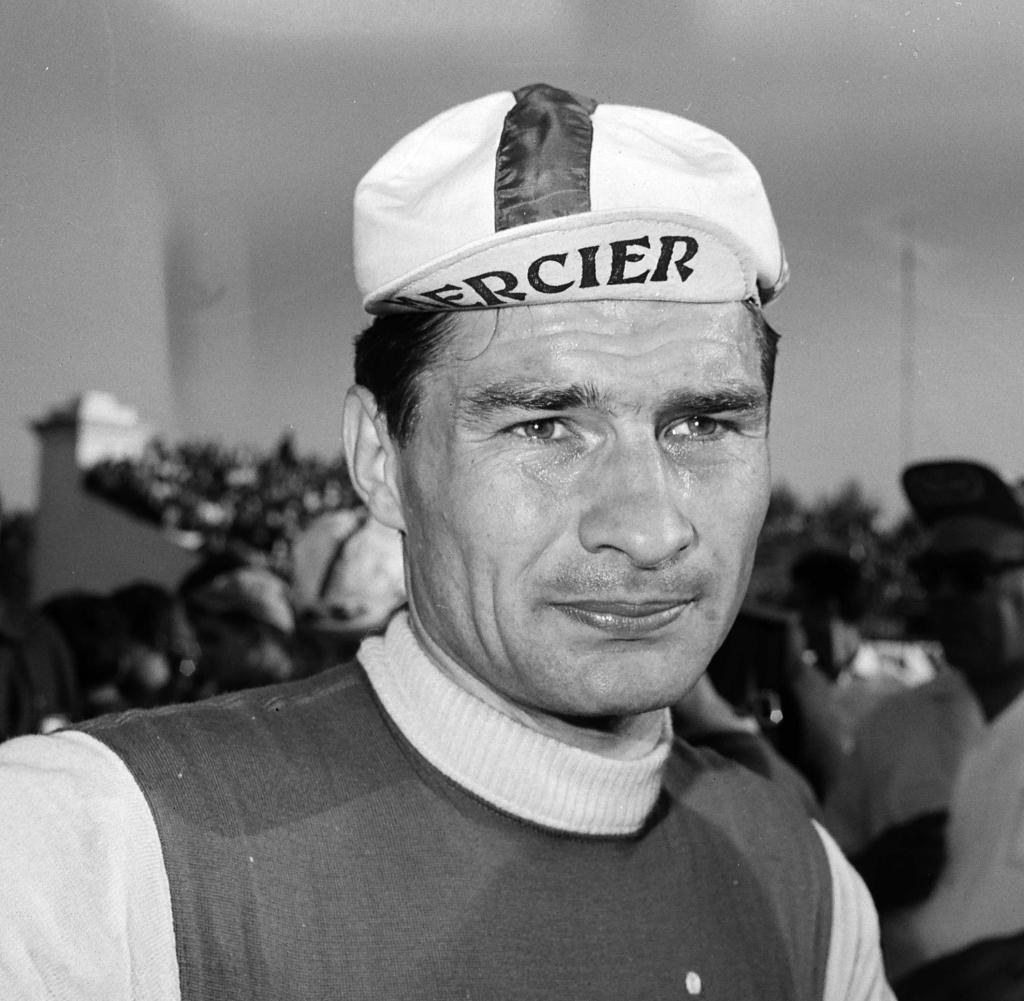A sunny Tour de France depart in the heart of ‘La France Profonde,’ a few years back.
Martin and I have parked-up on the parcours so as we can make a quick getaway to drive race route before the stage start.
As we walk into town we’re conscious of a commotion coming towards us; a stocky gentleman in a yellow polo shirt is walking towards us with his entourage.
The crowd is applauding, cheering, paying homage.
It’s ‘Poupou’ – 30-odd years since the man last raced but he’s still as popular now as when he duelled with Anquetil and Merckx.
It’s a nice feeling to be in the presence of greatness and all that affection.

Sadly, on 13th November at the age of 83 – he was born on April 15th 1936 – Raymond Poulidor, Chevalier de la Légion d’honneur left us.
And so too did another part of my youth, along with Patrick Sercu and Felice Gimondi – it hasn’t been a good year.
Born in rural Masbaraud-Merignat, Poulidor’s early life was that of a farm boy, working the fields on his parents tenant farm.
His interest in bike racing was piqued by a teacher who would bring the famous sepia ‘Miroir Sprint’ magazine in for his pupils to read.
One of four brothers, three of whom raced – Henri would ride as an independent for his brother’s Mercier BP Hutchinson team in 1963 – Raymond turned professional late at 24 years-of-age having had to do his national service for 28 months with the Army in Algeria, where France was involved in a particularly nasty colonial independence war.
He signed with cycle manufacturer Mercier for season 1960 and would remain with the team in all incarnations until the end of his career in 1977.
From 1960 to ’69 it was Mercier BP Hutchinson; ‘70/’71 Fagor Mercier; ’72 to ’76 GAN Mercier and in ’77 Miko Mercier Hutchinson.
He gave notice of his talents with fifth in the 1960 World Championships behind winner Rik Van Looy of Belgium.
In a career which includes somewhere around 200 victories it’s impossible to list them all so we include the results we feel are most significant – but each and every year there was always a raft of placings and criterium wins.
In 1961 he had an outstanding season with wins in Milan-Sanremo and the French Championships – and this time he joined Van Looy on the Worlds podium, taking bronze.
His first of a still record eight Tour podiums came in 1962 with third behind a certain Jacques Anquetil; with a fifth place in Paris-Roubaix proving the pave held no fears for a man of the soil.
His rivalry with Anquetil would become legend.

In 1963 he proved his versatility with a win in the hilly Fleche-Wallone – he also took the ‘Week-end Ardennais’ for combined performances in the Fleche and Liege-Bastogne-Liege where he was fifth, which were held on consecutive days back then.
But also took the then highly prestigious Grand Prix des Nations time trial from Belgian specialist Ferdi Bracke.
His sole Grand Tour win came in the 1964 Vuelta, held in the spring in those days – and there were podiums in the Tour, second to Anquetil and Worlds, to Jan Janssen of the Netherlands.
That year was the nearest Poulidor ever got to Anquetil in le Tour, just 14 seconds going into the final TT – but that was as close as it got with ‘Maitre Jacques’ at his brilliant best in the last stage time test.
In 1965 he was again second in the Tour, this time to the precociously brilliant Italian Felice Gimondi (rest in peace); and in the Vuelta to German, Rolf Wolfshohl.
The 1966 season saw him take the second of a record five victories in the Criterium International; the Dauphine and another podium in le Tour, behind countryman Lucian Aimar.
He also took his third Worlds podium, bronze behind German strong man, Rudi Altig.
He finished the 1967 season very strongly with a podium in the Tour of Lombardy then a second of three wins in the now late lamented Escalada a Montjuich hill climb ‘stage race in a day’ in Barcelona which paid good appearance money and closed the Euro season.
For a ‘bumbling peasant,’ Poulidor was a shrewd man when it came to finances with his appearances in races such as this and the burgeoning French criterium circuit, out-stripping even those of five times Tour winner, Anquetil.

Poulidor won again on Montjuich in 1968 as well as taking another Criterium International.
The Dauphine went his way again in 1969 and another Tour podium; third to the new King of le Tour, Belgium’s Eddy Merckx.
The 1970 season saw the usual criterium wins and second places in the Catalan week and Paris-Roubaix.
The Criterium International and Etoille des Espoirs were his in 1971; with 1972 seeing him win the Criterium International again as well as the now defunct but very prestigious Derny -paced Criterium des As.
But apart from another third place to Merckx in the Tour, the jewel in the ’72 crown was his win in Paris-Nice where he inflicted a rare time test beating upon the Belgian Chrono King to take the GC.
A feat which he duly repeated in 1973 as well as taking the Midi Libere.
In 1974 it was again only Merckx who stood between him and a Tour victory – and remarkably, some 13 years after his first World Professional Road Race medal, the world title in Montreal.
Apart from the usual criterium wins in places like Auzances and Lanne there were no big results in 1975.
A year later he was back on the Tour podium with third place behind little Belgian Lucian van Impe.
And there was fifth in Lombardy and second in Paris-Tours.
He called ‘time’ in 1977 but sixth place in Paris-Nice showed he was still competitive.
And there was a rare treat for us British fans when he came over to ride the Glenryck Pilchards criterium at Eastway in London.
To summarise his career highlights then: he won the Championship of France, Milan-Sanremo, Fleche Wallone, the Grand Prix des Nations, the Vuelta, the Dauphine twice, Paris-Nice twice, the Criterium International five times was eight times on the Tour podium and four times on the Worlds podium.
He won the season-long Super Prestige Pernod competition, awarded to the world’s best road rider, in 1964 and the Prestige Pernod competition awarded to the best French rider four times.
By any measure a sterling career.

Far from being frustrated by his Tour ‘near misses’ Poulidor was present at every Tour from his retirement onwards in a public relations role with Credit Lyonais.
And his blood line still runs through the professional peloton with grandson by daughter Corrine – who married 80’s Classics and cyclo-cross star, Adri Van Der Poel – Mathieu already a huge star, with more to come.
And to close, how popular was he really with the French public?
‘A referendum held in France indicated that 48% of French people would prefer to spend Christmas Eve with Poupou rather than any other sports, show biz or political figure.’
Rest in peace, Monsieur Raymond Poulidor – second in le Tour but winner in the hearts of the French public.



